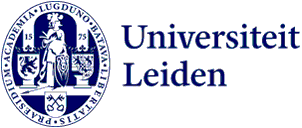
‘Listen carefully when students ask a question, to hear the question behind the question’
‘Rudy van Vliet is always willing to go that extra mile to help us,’ is what students say about him. The lecturer in the Computer Science bachelor’s programme not only teaches his regular courses but also offers additional classes to prepare students for programming competitions. His dedication to students has earned him a nomination for the Faculty Teacher of the Year award.

What does this nomination mean to you?
‘I consider it an honour to be nominated. Honestly, I found it somewhat surprising because my teaching is, in a way, quite traditional. It consists of lectures, tutorials, programming assignments, and written exams. The exception is the course ‘Preparation for Programming Competitions,’ where the homework assignments and the exam take the form of programming competitions with an automated judging system.’
What makes teaching enjoyable for you?
‘The interaction with the students. It is both enjoyable and important that they actively participate during the lectures. It’s gratifying when students demonstrate that they are starting to understand the material that was initially unfamiliar to them. Or when their questions anticipate the material I intend to cover. Or when they offer suggestions from which I can learn something myself. So, quite a lot, really.’
‘Additionally, interaction with students is important because, in my opinion, it leads to a deeper understanding of the material than when students try to learn solely from a book, the internet, or passively in the classroom.’
Courses
Rudy van Vliet teaches several courses. The course Algorithmics covers the various types of algorithms used to solve different kinds of problems. In the courses Automata Theory and Computability, he explores theoretical models of a computer with students. Additionally, an annual cycle of programming competitions is organised for students. In the course Preparation for Programming Competitions, Van Vliet covers various types of problems that may arise in programming competitions, how to solve them, and potential pitfalls.
What was a remarkable teaching moment for you?
‘There was a student who said she probably wouldn’t pass my course, but in the meantime, she worked very hard, asked many questions, and eventually just passed it.’
How do you bring out the best in your students?
‘That’s a question I don’t often think about. Honestly, I just go with the flow. Perhaps being demanding on one hand and willing to think along with the students on the other.’
What is your tip for other teachers?
‘These might be clichés, but I would say: master the material, but also try to empathise with the students for whom the material is new. Listen carefully when they ask a question, to hear the question behind the question.’
Jury process
Our students play a significant role in the election of Faculty Teacher of the Year: student members of the programme committees nominate their favourite teacher. The chairs of our study associations and the assessor of the Faculty Board form the jury and decide who receives the Faculty Teaching Award.
All faculty awards will be presented during the New Year's reception on 9 January 2024.
